AnkerWork M650 specs
Price: $249
Microphone: Omnidirectional microphone
Sample Rate: 48kHz/24bit
Frequency response is 20hz to 20KHZ
Weight: Transmitter: 1.01oz Receiver: 1.3 oz
Size: Transmitter: 1.8×1.8×0.9-inches Reciever 1.7×1.4×1.2-inches
Battery Life: 15 Hours
Transmission Distance: Up to 652 feet
The new AnkerWork M650 is a splendid wireless microphone system consisting of two transmitting units and a receiver with a crystal clear color LCD touchscreen for fine-tuning settings and monitoring recording levels. The three devices are stored in the included charging case and come in several colors. The charging case also includes special connectors for an iOS or Android smartphone.
AnkerWork’s M650 wireless mic kit is a winner for not reinventing the wireless mic but for remembering critical capabilities that give content creators more options. In contrast, I have reviewed many new wireless mics this year, with most of them taking significant steps forward in design and audio quality. However, most wireless mic makers have been foregoing the inclusion of a 3.5mm mic jack on the transmitter which is a significant issue.
Let’s have a look at what makes the Ankerwork M650 a win.
AnkerWork M650 wireless mic price and availability
The Ankerwork M650 wireless mic kit is $249. It comes with two transmitters, one receiver, a soft carrying case, a cable that allows you to connect to a computer, and two connectors that allow you to connect to your iPhone, Android phone, or tablet.
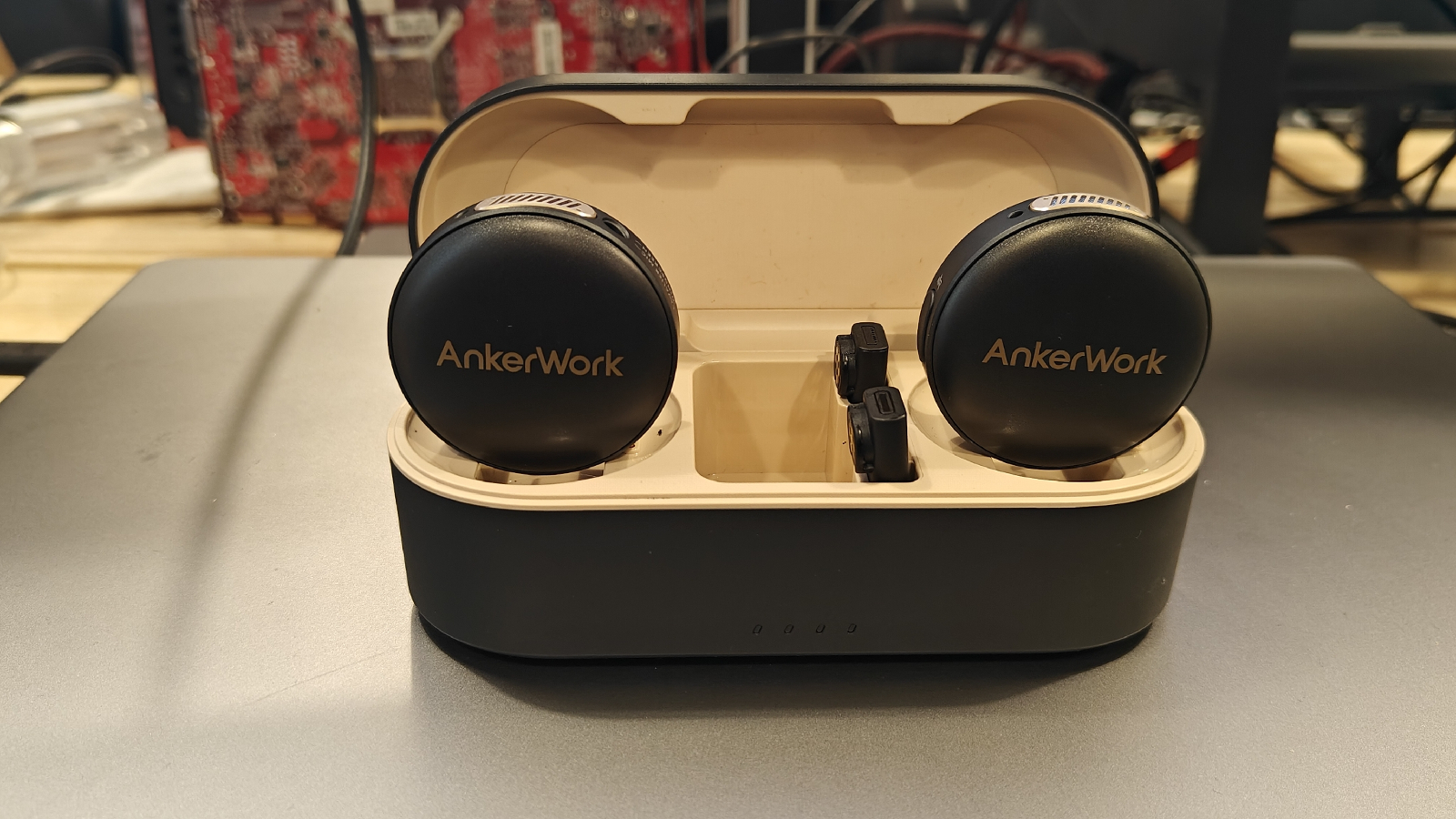
In comparison, you will find a similar disc (audio puck) design and price with the Saramonic Blink Me wireless 2-person mic kit ($249) we recently reviewed. The DJI mice reviewed cost $329 at B&H Photo. The Rode Wireless Go II wireless mic kit will cost you $299 and allow you to plug into a Lavalier. You can also check out our best wireless mics page for more options
AnkerWork M650 wireless mic design
The M650 transmitter units are similar to the Saramonic Blink Me wireless mics as they have an attractive round shape. My units came with black covers with a bronze Angerwork Logo, but the covers are interchangeable and are available in various colors, so you can change things up or match your gear with your clothing.
The transmitters have a built-in removable clip enabling the microphone to be attached easily and quickly to a jacket lapel or shirt. The clip can also easily be removed to reveal a magnetic plate and used to attach the microphone to just about anything metallic.
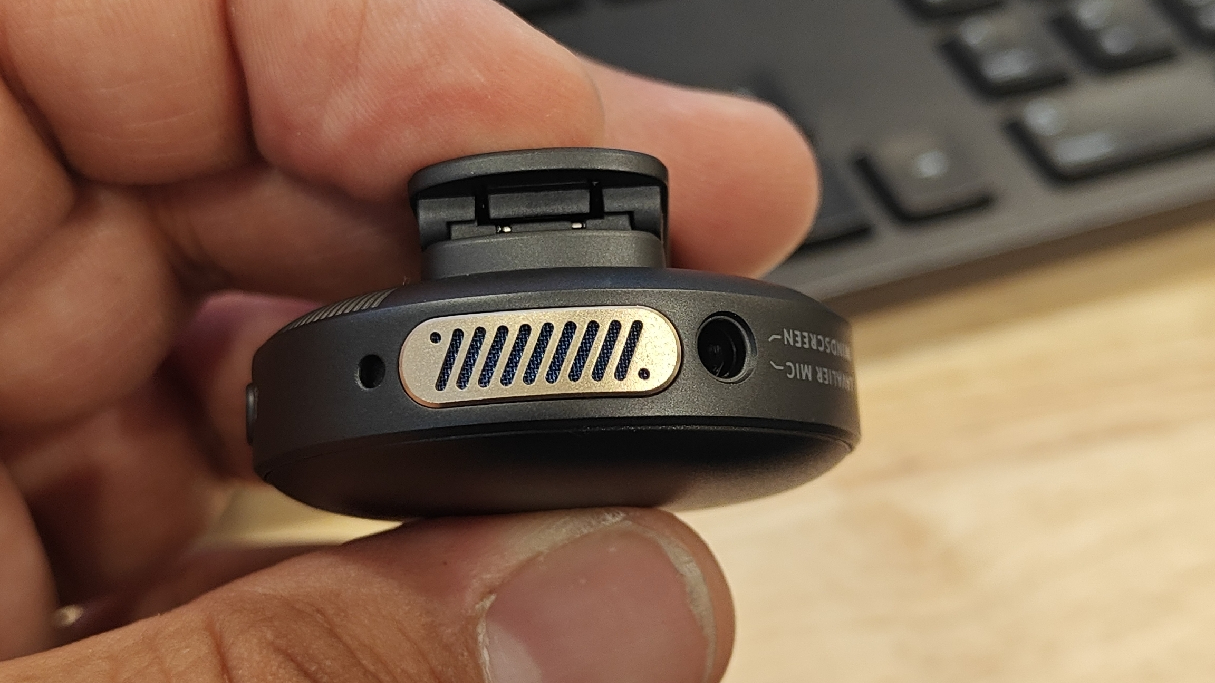
The transmitter units have a 3.5mm jack for using a Lavalier microphone in lieu of the built-in microphone. Using a Lavalier microphone enables users to hide the mics on the subject better and be less obtrusive. The transmitter also has a mount to attach the fuzzy windshields that come with the unit and help when recording outdoors or during windy conditions.
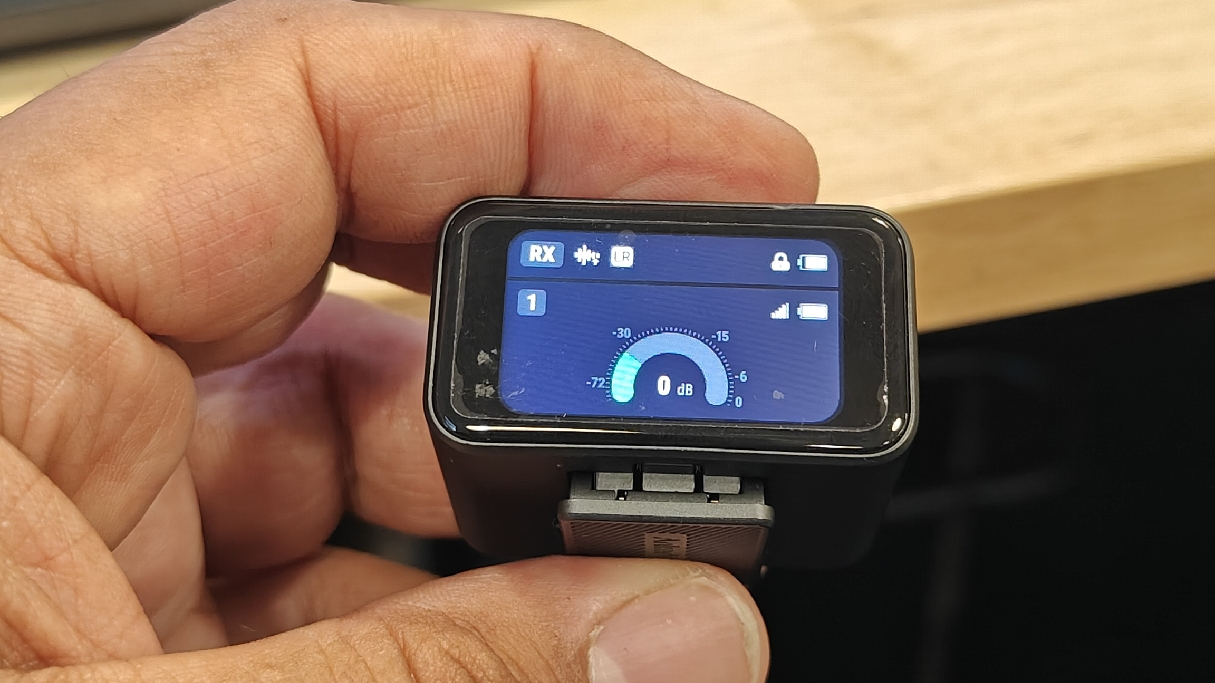
The AnkerWork M650 receiver is a relatively compact cube with one of the best color LCD screens I’ve used on a wireless mic kit. The display shows users the gain levels, amount of noise cancelation, and other pertinent information like battery status and signal strength. You can use the touch-sensitive display to scroll left and right, up and down, and access settings such as adjusting the gain levels or muting the mics.
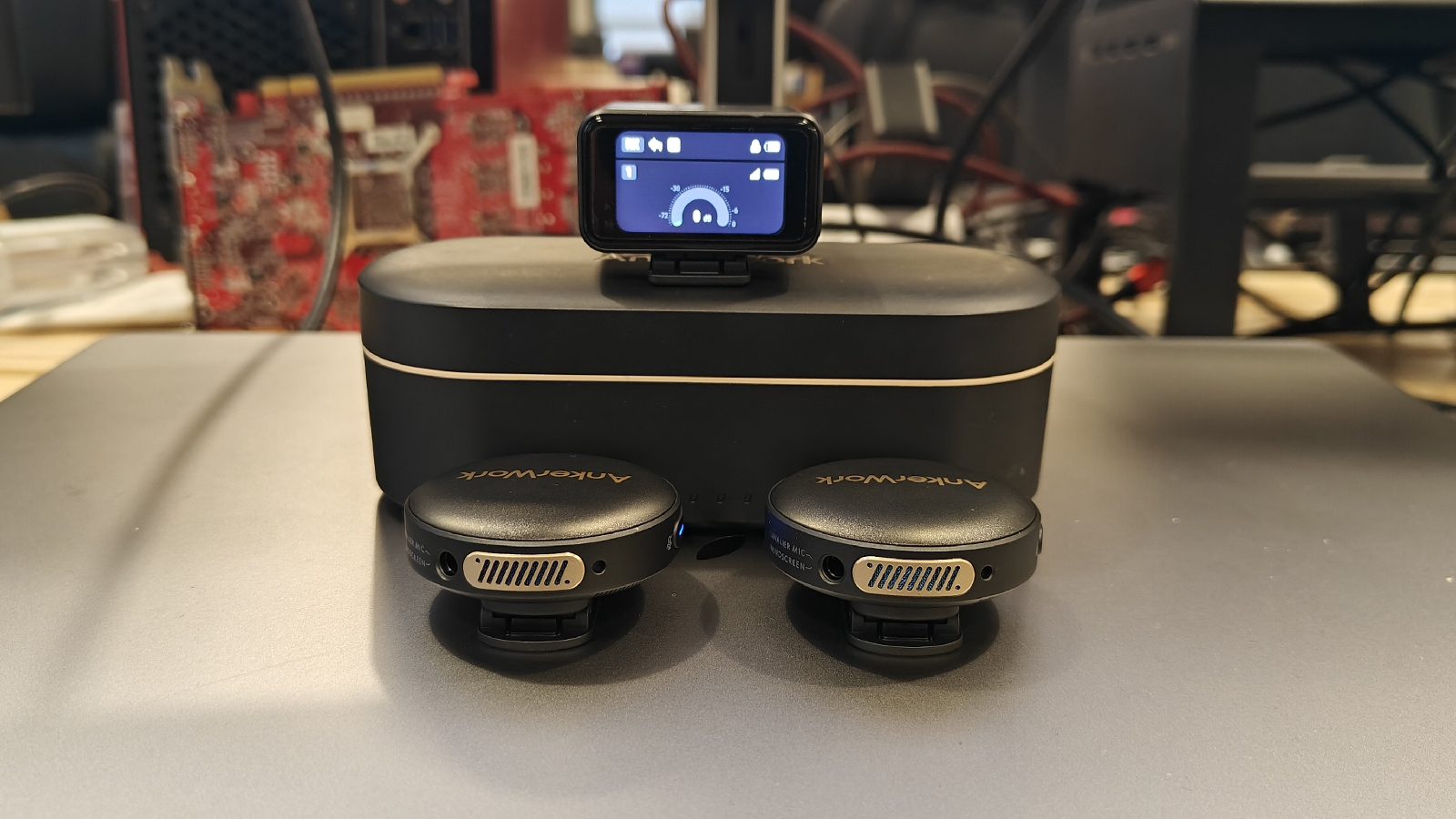
The receiver unit provides excellent connectivity options. You can connect to cameras, computers, and smartphones via the supplied cable and small Andorid and iOS attachments included with the kit. The two tiny adapters have USB-C or Apple Lightning connectors so creators can connect the receiver directly to the smartphone. Thus, it becomes the default microphone, which is great for conducting interviews or even a two-person podcast.
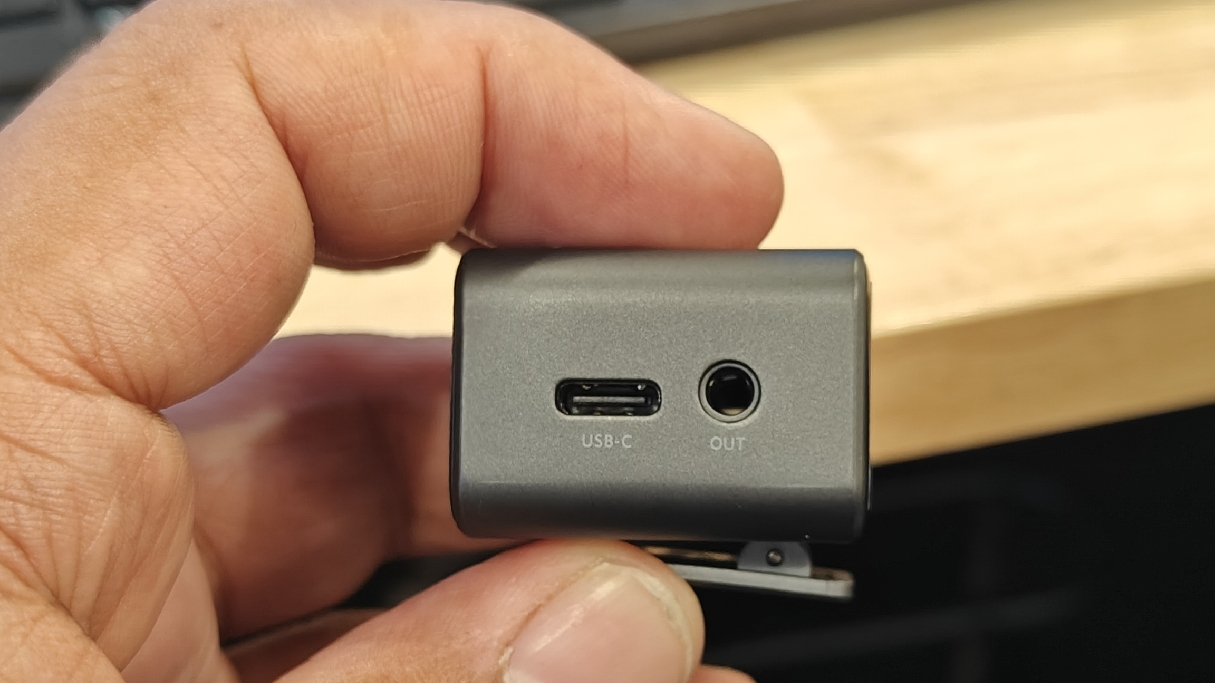
The best part about the AnkerWork M650 wireless microphone system is its easy use and setup. To get started recording great audio, all you need to do is open the case, pick up one of the transmitters, pull out the receiver, and you’re good to go. You don’t need to connect it to a camera or recording source because, thanks to 4GB of onboard memory, you can directly record hours of high-quality audio to the unit.
AnkerWork M650 wireless mic audio quality
The sound quality picked up by the AnkerWork M650 microphones is incredibly clear. The lossless LC3 plus codec produces immaculate audio, especially if you record directly to the transmitter, which will be saved in WAV format. The transmitter microphones have a warm but highly accurate sound quality with plenty of depth that doesn’t require much processing. The clip-on windshields work very well when recording outdoors.
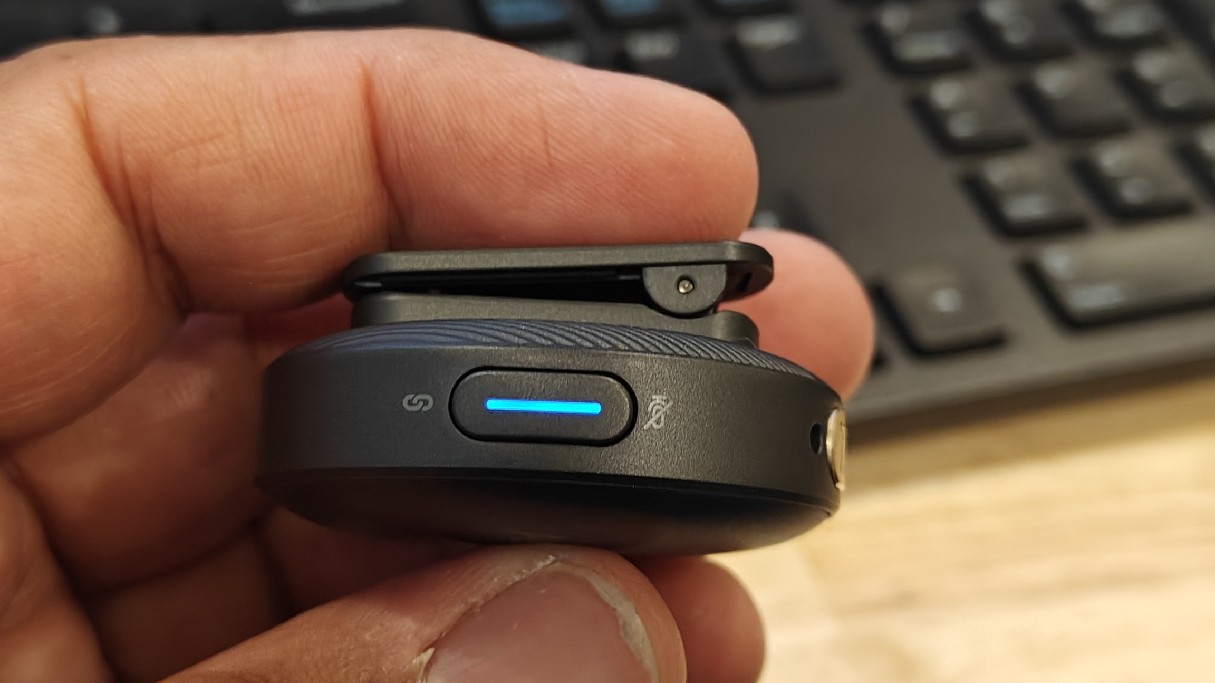
My favorite feature about the M650 is the ability to plug a Lavalier microphone into the transmitters. You can record in either two stereo tracks or one merged mono track. You can adjust this on the receiver’s display screen. Overall, the Ankerwork M650 has about every feature and option content creators want in a high-quality wireless microphone kit.
I used the Ankerwork M650s outdoors in my backyard and in our office in New York City and consistently recorded high-quality audio. I even tested them by walking around our office, which is filled with other wireless signals, columns, and obstacles, and still recorded excellent focus vocal audio from over 150 feet away.
AnkerWork M650 wireless mic software
The AnkerWork software for use with the M650 has a smooth-running user interface that’s very polished and quick to learn. The app gives the user access to all the settings needed, like noise reduction, a low-pass filter, and even an equalizer. You can also use the app to update the M650’s firmware. I used it mostly to fine-tune my audio settings for when I started filming.
I found the built-in noise reduction mode, which is called VoiceShield, does an effective job of cutting out some of the ambient sounds. However, you may notice that it will sometimes overcompress the audio, making it sound unnatural. Although the Ankerwork M650 is plug-and-playable, I recommend downloading this free app for Android and iOS to gain finer control over your audio settings.
AnkerWork M650 wireless mic battery life
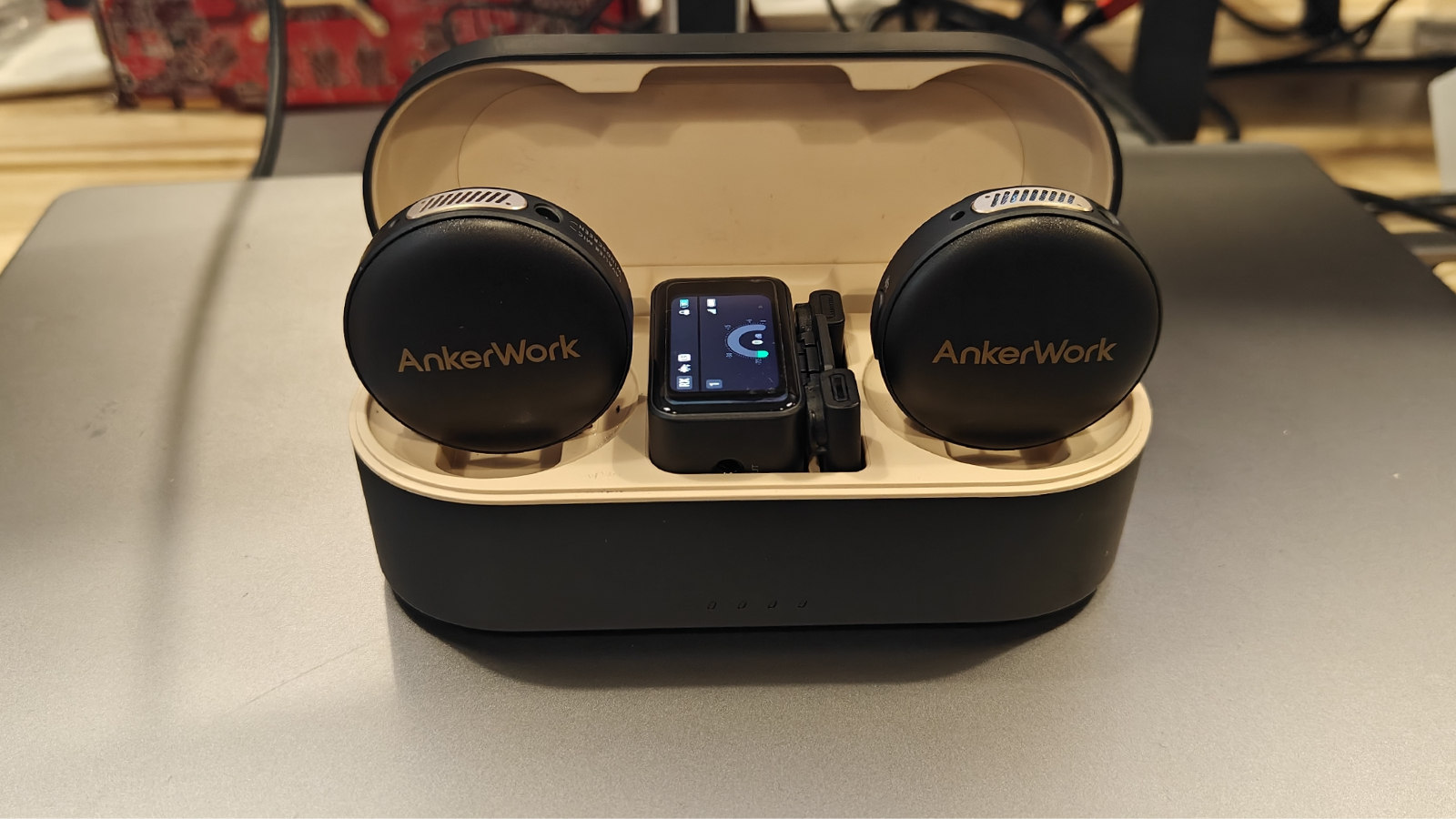
Once you fully charge the receiver and transmitter, you will average seven to eight hours of use before having to recharge. You could get more out of a single charge if you remember to power down between filming. With the included charging case, you should get 15 hours of usage from the M650 wireless mic kit and more if you occasionally power down the units between setting up different scenes and shots. So you will get a full days use from them, as most production tend to go 12 hours.
Bottom Line
AnkerWork has done great with the M650 wireless microphone system. The transmitter units are stylish and feel well-made. The interchangeable covers are a nice touch and the choice of clip or magnetic attachment is welcome. The receiver unit has a high-quality LCD for adjusting settings and monitoring levels.
My only nitpicky issue with the M650s is battery life and that some may find them to be a little thick, and hard to hide. However, those are two tiny issues you can easily work around and will forget about quickly when you hear the fantastic audio you’ve recorded.
The Ankerwork M650s are great to film TikTok videos, Instagram Reels, or longer work for things like YouTube, and Vimeo. When you compare all the features and options the Ankerwork M650s offer content creators for $249, with other brands, it becomes an easy choice and a win for Anker.
Source link
 notebook.co.id informasi dan review notebook laptop tablet dan pc
notebook.co.id informasi dan review notebook laptop tablet dan pc